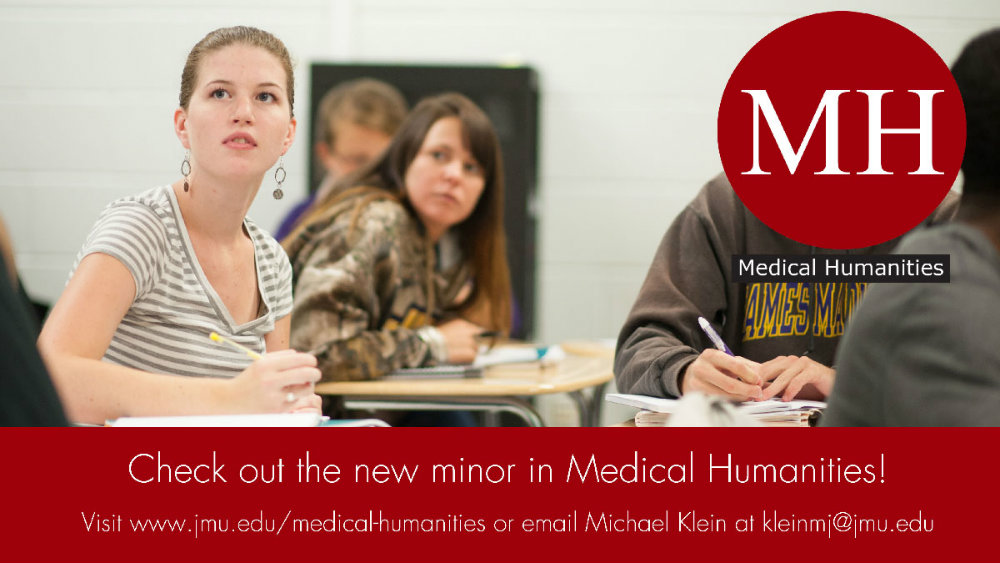WRTC Participates in the New Cross Disciplinary Minor in Medical Humanities
News
Typically, we approach the human body from a medical, diagnostic model. But physicians have long recognized that this approach to health and well-being is not sufficient for understanding our somatic life. The new cross disciplinary minor in Medical Humanities responds to overwhelming support and interest from faculty members across the disciplines whose scholarship and teaching are at the intersection of medicine, natural sciences, humanities and social sciences.
Developed and coordinated by WRTC associate professor and Cohen Center Director Dr. Michael J. Klein, the minor is advised by faculty from across the university: Dr. Amanda Biesecker, Department of Integrated Science and Technology; Dr. Rebecca Brannon, Department of History; Dr. Rebecca Howes-Mischel, Department of Sociology and Anthropology; Ms. Kristy Liskey, Physician Assistant Program; and, Dr. Cathryn Molloy, School of Writing, Rhetoric and Technical Communication. With the assistance of Dr. A.J. Morey, Associate Vice Provost of Cross Disciplinary Studies and Diversity Engagement, the minor has grown to include course offerings from 14 units in three colleges:
- School of Communication Studies
- Department of English
- Geographic Science Program
- Department of Health Sciences
- Department of History
- Department of Integrated Science and Technology
- Program in Interprofessional Education
- Department of Justice Studies
- Department of Philosophy and Religion
- Department of Psychology
- Department of Sociology and Anthropology
- Women’s and Gender Studies
- School of Writing, Rhetoric and Technical Communication
Designed to complement any major, the minor provides students with a humanistic and social study of illness, health and the body. Drawing upon concepts found in the disciplines contributing to the minor, courses in the curriculum share the common focus of examining how individuals and institutions articulate and disseminate conceptions of the body, including constituent issues such as race, ethnicity, sexuality and gender. Students choose six courses (18 credit hours) from a list of approved electives, with no more than two courses from a single subject:
- ANTH/SOCI 352. Birth, Death, Sex: Exploring Demography
- ANTH 360. Medical Anthropology
- ANTH 376. Anthropology of Reproduction
- ENG/WGS 368. Women’s Literature
- ENG 423. Advanced Studies in Gender and Sexuality in Literature
- GEOG 323. The Geography of Human Genetics, Infectious Diseases and Diet
- HTH 372. Human Sexuality
- HIST 306. A History of the Body in the West
- ISAT 456. Ethical, Legal and Social Implications of Biotechnology
- ISAT/WGS 485. Gender Studies in Science
- IPE 415. Ethical Decision-Making in Healthcare
- JUST 315. Mental Illness and the Criminal Justice System
- PHIL 262. Problems in Applied Ethics
- PSYC 308. Health Psychology
- REL 280. Religion and Science
- SCOM 471. Culture and Health Communication
- SOCI 336. Race and Ethnicity
- SOCI/WGS 337. Sociology of Gender
- SOCI 375. Medical Sociology
- SOCI 385. Madness and Society: Sociology of Mental Health and Illness
- WRTC 458. Scientific and Medical Communication
- WRTC 488. Writing in the Health Sciences
